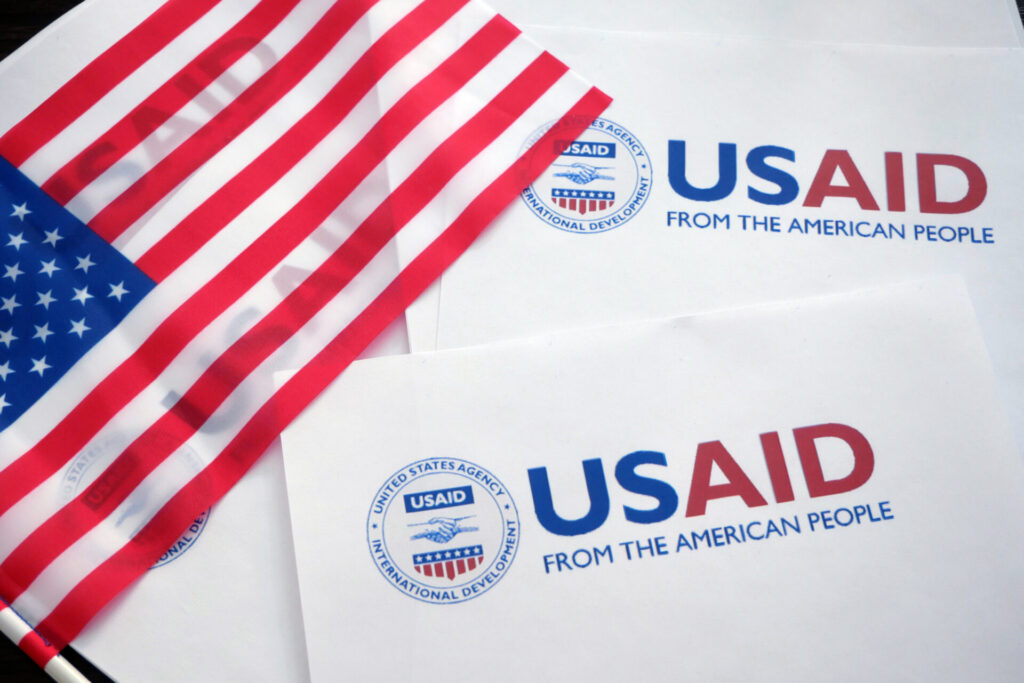Patriotic Americans, we’re at a crossroads. When Donald Trump vowed to put America first, many rallied behind him, buoyed by the promise of cutting waste and tightening the reins on inefficient bureaucracies. But in the trenches of Washington, a fierce battle within the State Department threatens the heart of this agenda. Let’s call it what it is—an ideological clash between the establishment insiders who prefer the status quo and the bold MAGA loyalists committed to sweeping change. At the center of this showdown is USAID, the U.S. Agency for International Development.
For years, USAID has been a symbol of sprawling government, with its tentacles extending into countless foreign aid projects, some of which yield questionable returns for American taxpayers. As Reagan Reese reports for The Daily Caller, the Trump administration has targeted USAID for an overhaul to bring it under the scrutiny of the Department of Government Efficiency (DOGE), led by the no-nonsense Elon Musk. The objective? To slash wasteful spending and redirect our focus to making America the priority. Yet, a division within the State Department, led by Secretary of State Marco Rubio, reveals a push-and-pull dynamic.
On one side, loyalists to the President firmly endorse the downsizing of USAID, unwavering in their commitment to fulfilling Trump’s promises. On the other, some moderate Republican senators exert pressure on Rubio—insistent on keeping their pet projects afloat under USAID’s budget. These senators, many seated on appropriations committees, have vested interests tied deeply to these overseas programs. Elon Musk’s DOGE team is steadfast, yet the challenge grows as Marco Rubio navigates calls from his former Senate colleagues.
A senior Trump administration official voiced their frustration to the Daily Caller, stating that “they don’t even flinch when the President issues an executive order. To the contrary, it’s as though it never happened.” That line speaks volumes about the inertia within our government and the persistent tug of old alliances that challenge progress.
Rubio’s key aides, Mike Needham and Dan Holler, are at the epicenter of the chaos, bridging talks with resisting senators while trying to stay aligned with the administration’s goals. The apparent reluctance of Rubio to take on this mantle led to the appointment of Pete Marocco to oversee USAID’s closure. Yet, Marocco’s recent departure from the State Department signals unrest that challenges the cohesion needed for such a monumental task.
Critics from within worry whether USAID’s dismantling will proceed without interference. Despite the turbulence, Deputy Press Secretary Anna Kelly insists that Marocco’s work epitomized Trump’s agenda to “eliminate waste and restore accountability.” While there’s no denying the efficacy of Marocco’s strategies, the political quagmire he encountered cannot be taken lightly.
More telling is the reported discontent within the State Department’s ranks—employees shifting offices or calling in sick due to fears of interruption and surveillance. It’s a reminder of the complexities faced by those driving conservative reform amid entrenched opposition. Yet, amidst the confusion, there’s clarity in President Trump’s mission: a streamlined government that prioritizes American interests over bloated bureaucracies catering to global spending. Marco Rubio finds himself at a pivot point. The decision of whether to remain tied to Senate influences or to fully embrace the President’s agenda will define his legacy.
The struggle within the State Department isn’t merely a bureaucratic reshuffle; it’s emblematic of the larger battle in Washington—one between entrenched power structures and the authentic desire to reclaim America’s greatness. As Senator Lindsey Graham noted, “USAID—as we know it—will no longer exist,” a prediction reflecting the desire to consolidate functions under one more focused and accountable entity. Too often, our government becomes entangled in minutiae, losing sight of the grand vision that made America an exceptional nation. Trump’s focus on putting America first isn’t just campaign rhetoric; it’s a strategic necessity.
As conservatives, the takeaway is clear: vigilance must remain unwavering. In the face of internal dissent and external pressures, our task is to advocate relentlessly for policies that prioritize American citizens, uphold accountability, and resist regressions into fiscal irresponsibility. It’s time the bureaucrats in Washington realized the true strength of this nation lies not in compromise for compromise’s sake but in bold action that defines true leadership.

